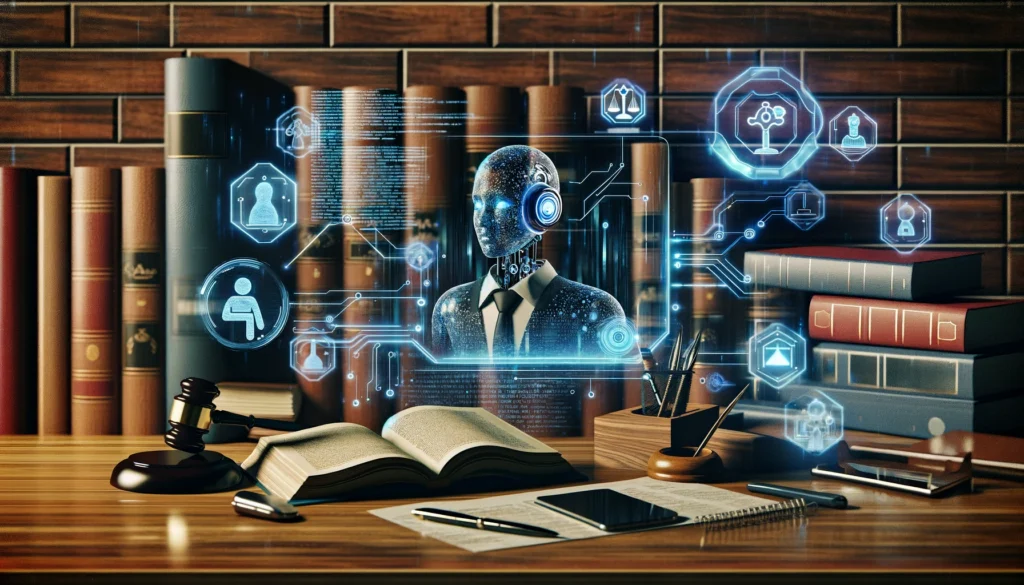
Unlocking Efficiency: Revolutionizing Estate Planning with AI
The legal profession is witnessing an epochal shift, driven by the integration of Artificial Intelligence (AI). With technologies like ChatGPT finding their place in various facets of law, the era of AI-powered assistance is indeed upon us. This is particularly transformative in the realm of estate planning, where substantial documentation and intricate legal intricacies can now be managed with greater efficiency and precision.
ChatGPT, with its advanced natural language processing capabilities, is poised to redefine how estate planners operate, making it a paramount tool for modern legal practices.
Understanding ChatGPT: The Basics and Beyond
ChatGPT is an AI-driven language model developed by OpenAI, designed to understand and generate human-like text. At its core, it employs a sophisticated neural network which deciphers context from textual input and produces coherent, contextually relevant responses, effectively mimicking human interaction.
For estate planning, ChatGPT can be harnessed to automate repetitive tasks, generate template documents, and provide rapid, precise summaries of complex legal text. Its ability to comprehend and generate nuanced language makes it especially useful for legal professionals who need to draft varied and intricate documents with precision and speed.
Also read:
Streamlining Document Summaries with Precision
One of the major advantages of employing ChatGPT in estate planning is its capability to generate clear and concise legal summaries. This is how you can optimize its use:
- Utilizing Prompts: Carefully crafted prompts can yield precise summaries. For instance, inputting “Summarize the attached 2021 trust fund documentation with emphasis on beneficiary clauses” ensures that ChatGPT focuses on the required details.
- Template Summaries: For recurring types of documents, template-based prompts such as “Summarize the last will and testament, highlighting changes in asset distribution and executor duties” lead to consistent results.
Ensuring Accuracy and Reliability: While ChatGPT is an efficient tool, verifying the output against the original documents remains crucial. Cross-referencing AI-generated summaries can safeguard accuracy and uphold legal standards, ensuring the AI’s results meet stringent reliability criteria.
Also read:
Crafting Tailored Estate Plans Swiftly
Efficiency in creating estate plans customized to individual client needs is greatly enhanced with ChatGPT. Here’s how you can leverage this technology:
- Initial Prompts: Input detailed client information with prompts like “Generate a comprehensive estate plan for a client with two minor children, including guardianship clauses and a trust for education expenses.”
- Customizing Legal Documents: Utilizing prompts such as “Draft a will including specific bequests: $10,000 to AJ School, the painting collection to my sister Jane Doe” can aid in precisely tailored wills and trusts.
To ensure legal compliance, integrating guidelines into prompts like “Create a revocable trust in accordance with California state laws” guarantees that the output adheres to regional legal standards, maintaining the integrity of AI-generated documents.
Also read:
Enhancing Client Communication with AI
Clear communication with clients is pivotal in estate planning. ChatGPT can play a significant role in translating legal jargon into easily comprehensible language:
- Translating Legal Terms: Prompts such as “Explain the concept of ‘power of attorney’ in simple terms suitable for a client” can simplify complex ideas.
- Creating Correspondence: For client updates, a prompt like “Draft a letter to the client summarizing recent changes to their estate plan” ensures thorough and clear communication.
This utility not only bridges the gap between legal complexities and client comprehension but also enhances client trust and engagement.
Also read:
Research and Resource Compilation Made Easy
Streamlining research is another domain where ChatGPT excels. For estate planning, efficient research processes are crucial:
- Legal Precedents: Prompts such as “Compile relevant case law on irrevocable trusts in New York state” can swiftly gather pertinent legal data.
- Statute Compilation: A query like “List the latest statutory changes in estate tax laws for 2023” ensures you are equipped with updated legislative information.
By curating a comprehensive resource base, ChatGPT allows legal professionals to focus more on client advisory and less on manual research, thus optimizing overall workflow efficiency.
Also read:
Staying Ahead: Ethical Considerations and Best Practices
While integrating AI into legal practices offers myriad benefits, it also necessitates rigorous ethical consideration. Ensuring client confidentiality is paramount. Utilize encrypted communication channels for sensitive input and verification processes to mitigate risks.
Developing standardized best practices for using AI responsibly will ensure alignment with professional ethical standards, fostering a balanced and trustworthy adoption of AI technologies.
Also read:
The Future of Paralegal Work: A Symbiotic Relationship with AI
AI tools like ChatGPT are augmenting the legal profession rather than replacing human expertise. Paralegals should embrace these technologies as enhancements that save time and allow deeper focus on complex legal issues.
The fusion of AI and human expertise is transforming legal workflows, paving the way for more efficient, precise, and client-centric estate planning.


